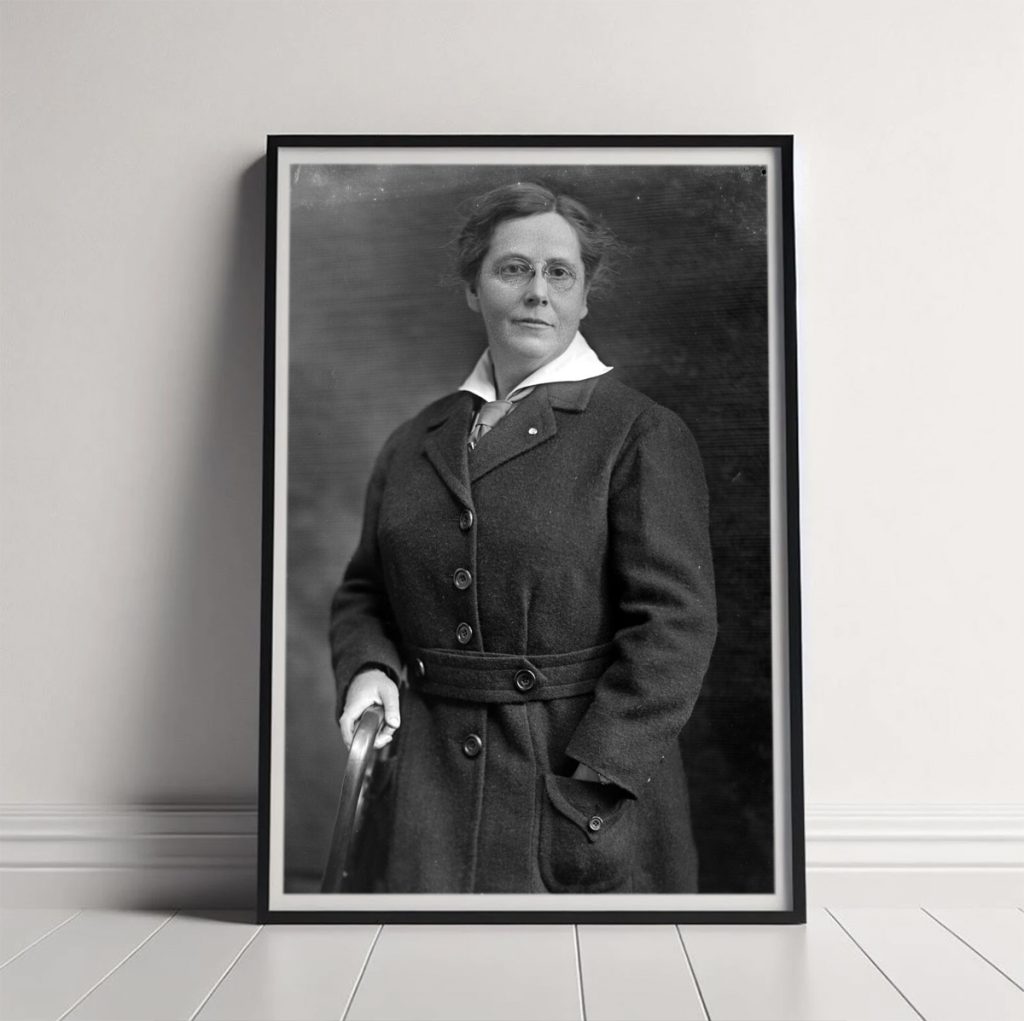
Marian de Forest
Journalism
Playwright
Founder of Zonta International
About Marian de Forest
Marian de Forest: A Trailblazer Born in Buffalo
On February 27, 1864, Buffalo, NY welcomed Marian de Forest into the world—a woman whose determination, intellect, and creativity would leave an indelible mark on history. Throughout her life, de Forest broke barriers, championed women’s rights, and contributed significantly to journalism, the arts, and social progress. Her story is a testament to the power of perseverance and vision in shaping a better world.
Early Life and Determination
Marian de Forest was born to Cyrus H. and Sarah Germain Sutherland deForest. A childhood eye injury meant she initially relied on private tutoring, but she overcame this challenge and excelled academically, graduating from Buffalo Seminary in 1884. This strong foundation of resilience and education would define her approach to life and her career.
A Pioneer in Journalism
After her graduation, de Forest embarked on a groundbreaking career in journalism. At a time when women were rarely seen in newsrooms, she became one of the first female reporters in Western New York. She began with The Buffalo Evening News and later joined The Buffalo Commercial. Her unique voice and keen insights earned her a prominent role as city editor, a remarkable achievement in an era when women in leadership were all but unheard of.
Playwright and Advocate for Women in the Arts
De Forest combined her passion for writing with her love of the arts, becoming a respected playwright. One of her most notable works was her 1911 stage adaptation of Louisa May Alcott’s Little Women. This production captivated audiences and brought attention to the need for authentic and substantive roles for women in theater. The play even helped launch the career of Katherine Cornell, a legendary actress who went on to gain international fame.
De Forest’s dedication to elevating the arts extended beyond her work as a playwright. She co-founded the Buffalo Musical Foundation, actively promoting the American Opera Company in Western New York. She also played a vital role in the development of the Buffalo Philharmonic Orchestra, enriching the cultural landscape of her hometown and creating opportunities for local artists and audiences alike.
Founder of Zonta International
Perhaps Marian de Forest’s most enduring legacy is her role as the founder of Zonta International. On November 8, 1919, at Buffalo’s Hotel Statler, she gathered prominent women from diverse professions to create a service organization aimed at improving the legal, political, economic, and professional status of women. Zonta, derived from a Lakota Sioux word meaning “honest and trustworthy,” quickly grew into a global movement.
De Forest envisioned Zonta not as a group advocating for competition but as an organization focused on cooperation, ethics, and empowerment. “This is the woman’s age,” she declared, foreseeing a future where women worldwide would unite to uplift one another and create meaningful change. Today, Zonta International continues to champion women’s rights and gender equality on a global scale, fulfilling de Forest’s inspiring vision.
Advocate for the Community
Marian de Forest’s contributions extended well beyond the arts and women’s movements. She served as the manager of the Buffalo Musical Foundation, organized symphony concerts for children, and played a critical role in promoting the first Pops concert, which provided work for unemployed musicians during the Great Depression.
She was also a dedicated supporter of education and literature, serving on the board of the Buffalo Public Library—the only woman in this prestigious role at the time. Her involvement with the Society for the Prevention of Cruelty to Animals (SPCA) demonstrated her compassion and commitment to broader societal causes.
Honors and Legacy
Marian de Forest’s remarkable achievements were celebrated both during her lifetime and posthumously. Just weeks before her 71st birthday, she passed away on February 17, 1935, leaving a legacy that continues to inspire.
De Forest was buried in Buffalo’s Forest Lawn Cemetery, and the outpouring of tributes reflected her profound impact on her community and beyond. She was inducted into the National Women’s Hall of Fame in 2001, becoming the first woman from Buffalo to receive the honor. This recognition cemented her status as a trailblazer who paved the way for generations of women to dream big and break barriers.
Remembering Marian de Forest
From her groundbreaking journalism to her advocacy for women’s rights, cultural enrichment, and community service, Marian de Forest’s life exemplifies the power of vision and perseverance. Through Zonta International and her contributions to the arts, she created a legacy that continues to empower and inspire.
Marian de Forest remains a shining beacon of what one individual, driven by purpose and passion, can achieve. Her story is not just a chapter in history—it’s a call to action for all of us to push boundaries and strive to improve the world for future generations.
